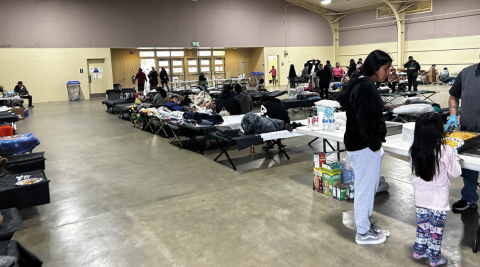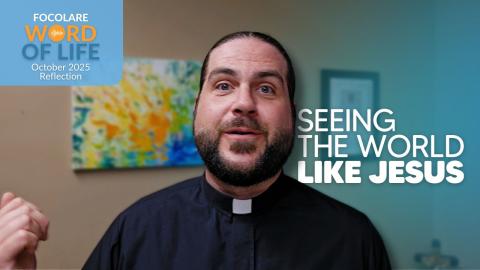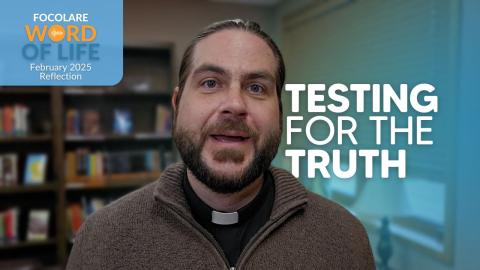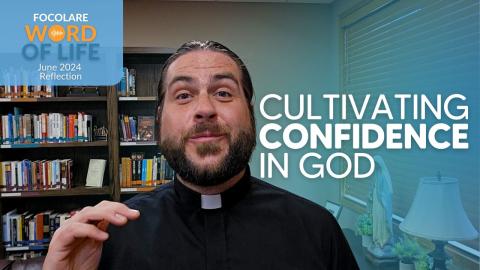“But a Samaritan while traveling came near him; and when he saw him, he was moved with pity.” (Lk 10:33)
Martine was riding the subway in a large European city. As she looked around, she noticed that everyone was absorbed in their phones—connected to others virtually, yet isolated and completely unaware of those beside them. She wondered, “Have we lost the ability to simply look one another in the eye?”
This is a common experience, especially in societies filled with devices but increasingly empty of personal relationships. In contrast, the Gospel consistently calls us back to its unique and creative proposal—a way of living that has the power to make “all things new.”
In the Gospel, Jesus has a long conversation with a doctor of the Law who asks what he must do to inherit eternal life. In response, Jesus tells the well-known parable of the Good Samaritan. A priest and a Levite—both respected figures in the society of the time—see a man who has been attacked by bandits and left injured by the roadside. Yet, they pass by without stopping to help
“But a Samaritan while traveling came near him; and when he saw him, he was moved with pity.”
This doctor of the Law knew well that God had given the commandment to love one’s neighbor. Yet Jesus presents as a model not a fellow believer, but a foreigner—someone regarded as a heretic and even an enemy.
This outsider sees the wounded traveler and is moved with compassion—a response that comes from deep within the human heart. Because of this, he stops his journey, draws near, and tenderly cares for the man.
Jesus knows that every human being is wounded by sin. In fact, it is precisely for this reason that he came to earth: to heal hearts with the free gift of God’s mercy and forgiveness, making them capable of drawing close to others and sharing in their lives. “If we want to learn to be merciful like our heavenly Father, to be perfect as He is, we must look to Jesus, who fully revealed the Father’s love. (…) Love is the supreme value that gives meaning to everything else (…) and finds its highest expression in mercy. Mercy allows us to see others with new eyes—those we live with every day, in our families, at school, at work—no longer defined by their faults or failures. Mercy helps us not to judge, but to forgive the wrongs done to us, even to forget them.”
The final and decisive conclusion is a clear invitation: “Go and do likewise.”5 This is what Jesus says to anyone who welcomes his Word. He calls us to become neighbors—to draw near, take the initiative, and “touch” the wounds of those we encounter along the everyday roads of life.
To live the “closeness” to others that the Gospel teaches, we must first ask Jesus to heal our blindness— born of prejudice and indifference—those barriers that keep us from seeing beyond ourselves. Only with His guidance can we open our hearts and fully embrace the depth of compassionate love.
Then we can learn from the Samaritan the art of compassion—compassion that moved him to risk his own life. Let us imitate his readiness to take the first step toward others, to listen deeply, and to make their pain our own. To do this, we must be free of judgment—and free from the worry that we are “wasting time.”
Here is the experience of a Korean teenager: “I tried to reach out to another teen who wasn’t from my culture and whom I didn’t really know. Even though I wasn’t sure what to do or how to approach her, I found the courage to try. To my surprise, by offering my help, I discovered that I myself was being ‘healed’ of my own inner wounds!”
This Word offers us the golden key to recognizing our shared humanity—a reflection of God’s image. It calls us to be courageous, breaking through physical and cultural barriers that might otherwise divide us, and instead to live in genuine closeness with each person we meet. In doing so, we expand our narrow view of “us” to embrace “everyone,” laying the foundation for a more united and flourishing society.
Prepared by Letizia Magri and Word of Life team.





